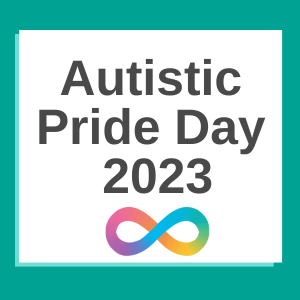
Autistic Pride Day is a celebration for autistic people held on 18 June each year. It is an opportunity for autistic people to celebrate both their potential and differences.
To mark Autistic Pride Day, a staff member from Cumbria, Northumberland, Tyne and Wear NHS Foundation Trust (CNTW) has shared her reflections:
I work at CNTW and I am an autistic woman. My own autism isn’t particularly visible to others.
There are a lot of stereotypes about autism, even among healthcare professionals.
I have particular sensory sensitivities and I can be very fixed or perfectionist in my thinking. I’m often misunderstood or misinterpreted and sometimes I struggle to understand the perspective of others.
My different take on life helps me to see connections, patterns, details. I feel emotions deeply and care strongly about inequalities and social justice, I am passionate and driven.
Like many autistic girls and women, I mask to try and fit in. This takes a toll. For a long time, I managed to hide my autism but eventually, I could no longer cope. I finally sought an autism diagnosis.
The diagnosis gave me a framework to understand myself better, it has helped me to be kinder to myself.
Autism is not an illness. It is a difference. My autism makes me who I am. My different take on life helps me to see connections, patterns, details. I feel emotions deeply and care strongly about inequalities and social justice, I am passionate and driven.
I don’t ‘fit’ the image that many people have of an autistic woman. I’ve had a successful career. I’m empathic. I can maintain eye contact.
If you do one thing today to help your autistic colleagues, please be open-minded. If a colleague tells you they are autistic, believe them.
Many autism traits apply differently to women and there are increasing numbers of autistic women who, like me, are being diagnosed later in life.
If you do one thing today to help your autistic colleagues, please be open-minded. If a colleague tells you they are autistic, believe them.
Examine your autism stereotypes.
Accept them for who they are and ask them if there is any way you can help them to flourish at work.
Because our autistic colleagues are amazing, just as ALL of our staff, with their individual gifts and traits and skills are amazing.
